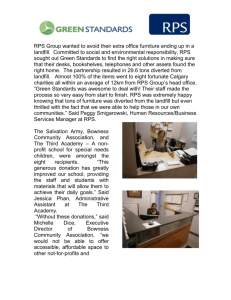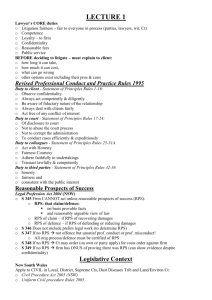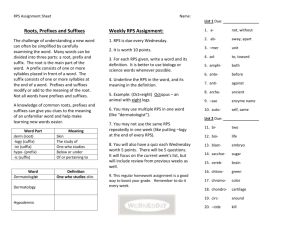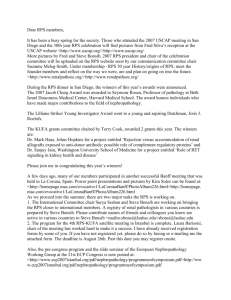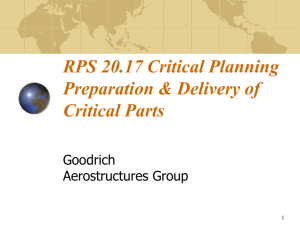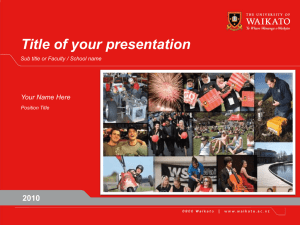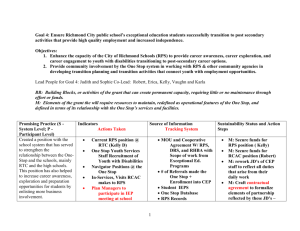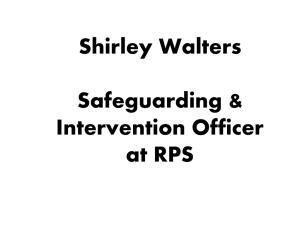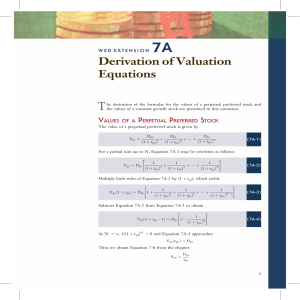Document
advertisement
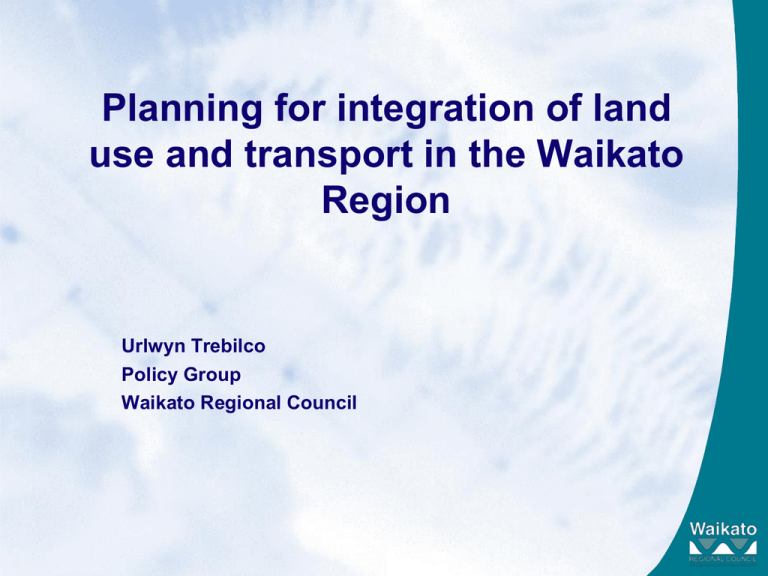
Planning for integration of land use and transport in the Waikato Region Urlwyn Trebilco Policy Group Waikato Regional Council Overview Future Proof Growth Strategy New transport related provisions in the RPS RPS and Future Proof Regional Spatial Plan? Upper North Island Strategic Alliance Future Proof Growth Strategy Manage growth in Hamilton City and Waikato and Waipa Districts Sets a broad 50 year land use pattern (Informs 30 year land use considerations pursuant to LTMA 2003 (s77d)) Indicates urban and industrial growth areas and staging Principles to guide decisions on growth Future Proof Growth Strategy Action plan including: Changes to RPS and district plans Southern Sector Study Transport related actions Describes relationship between growth and transport, growth issues and key approaches Regional Policy Statement The way the RPS manages infrastructure greatly changed by: S30(1)(gb) – strategic integration of infrastructure with land use District Plans must give effect to RPS RPS review – Greater emphasis on integrated management of built environment Implementing Future Proof Review in tandem with review of RLTS RPS and Transport 6 Issue statements – 1.4 Built Environment effects on sustainable management of N&P resources 62 policies, 18 policies in Built Environment section Key directions for Built Environment Improve strategic forward planning Improve information supporting planning Principles approach for growth management Integrate growth and infrastructure planning Important specific directions Where demand is high, the majority of ruralresidential development should be in identified areas In high growth areas, growth strategies should identify a 30 year spatial pattern Structure planning should occur before land is rezoned for urban development Information requirements to guide zoning for new development Nature, timing and sequencing of development coordinated with development, funding and operation of transport Important specific directions District and regional plans to ensure: Development supports public transport Walking and cycling facilities integrated with developments Safe, efficient and effective transport systems maintained Ribbon development avoided along identified significant transport corridors Urban development is predominantly directed to existing urban areas RPS and Future Proof Policies and methods to support Future Proof settlement pattern map and land allocation tables Urban development density targets Consolidate commercial development in existing commercial nodes Direct commercial development away from areas specifically provided for industry A regional spatial plan? WRC strategic direction 2010-13 Goal 2: The people of the region collaborate to achieve a shared vision of the Waikato competing globally, caring locally To achieve vision, develop a sustainable development strategy, including a regional spatial plan 2011/12 year: Developing a way forward through the Triennial Forum meetings Investigate models, information gaps, current strategic planning occurring Upper North Island Strategic Alliance Northland RC, Auckland Council, Bay of Plenty RC, Waikato RC, Hamilton CC, Tauranga CC and Whangarei DC To encourage closer communication and collaboration on strategic matters and to maximise sustainable development opportunities Transport issues will be high on the agenda, allowing for better alignment of development and infrastructure planning across the Upper North Island Conclusions We are becoming more strategic, integrative and collaborative The RPS is providing stronger leadership on built environment (including transport) management Change is occurring fast!
